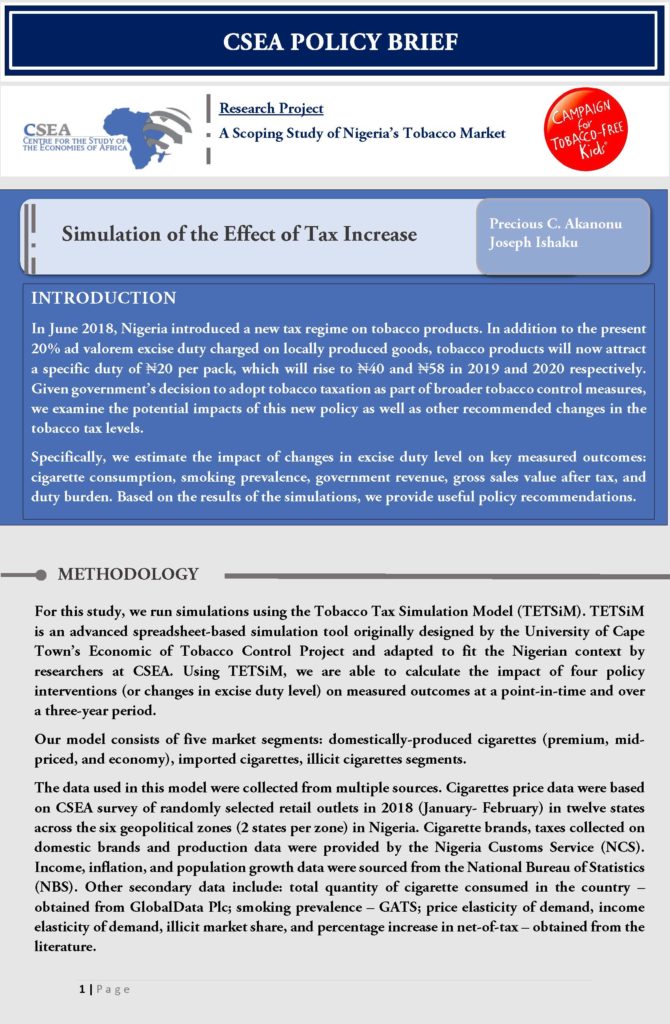In June 2018, Nigeria introduced a new tax regime on tobacco products. In addition to the present 20% ad valorem excise duty charged on locally produced goods, tobacco products will now attract a specific duty of ₦20 per pack, which will rise to ₦40 and ₦58 in 2019 and 2020 respectively. Given government’s decision to adopt tobacco taxation as part of broader tobacco control measures, we examine the potential impacts of this new policy as well as other recommended changes in the tobacco tax levels.
Policy Brief & Alerts

January 25, 2019
Simulation of the Effect of Tax Increase
In June 2018, Nigeria introduced a new tax regime on tobacco products. In addition to the present 20% ad valorem excise duty charged on locally produced goods, tobacco products will now attract a specific duty of ₦20 per pack, which will rise to ₦40 and ₦58 in 2019 and 2020 respectively. Given government’s decision to […]
Read →
Related
Nigeria Economic Update (Issue 15)
Nigerian
Naira depreciated by 1.2 percent at the parallel foreign exchange market
between April 7, 2017 and April 14, 2017. The naira exchanged at N410/$ as
against N405/$ the previous week. Despite the CBNs weekly dollar
sales to BDCs ($20,000 to each BDC in the review week) and spot market sales of
$100 million to SMEs, the nairas depreciated in the week. This may
likely be attributable to speculative motives (on the basis that speculators
likely anticipate that the CBN forex interventions may not be sustainable).


